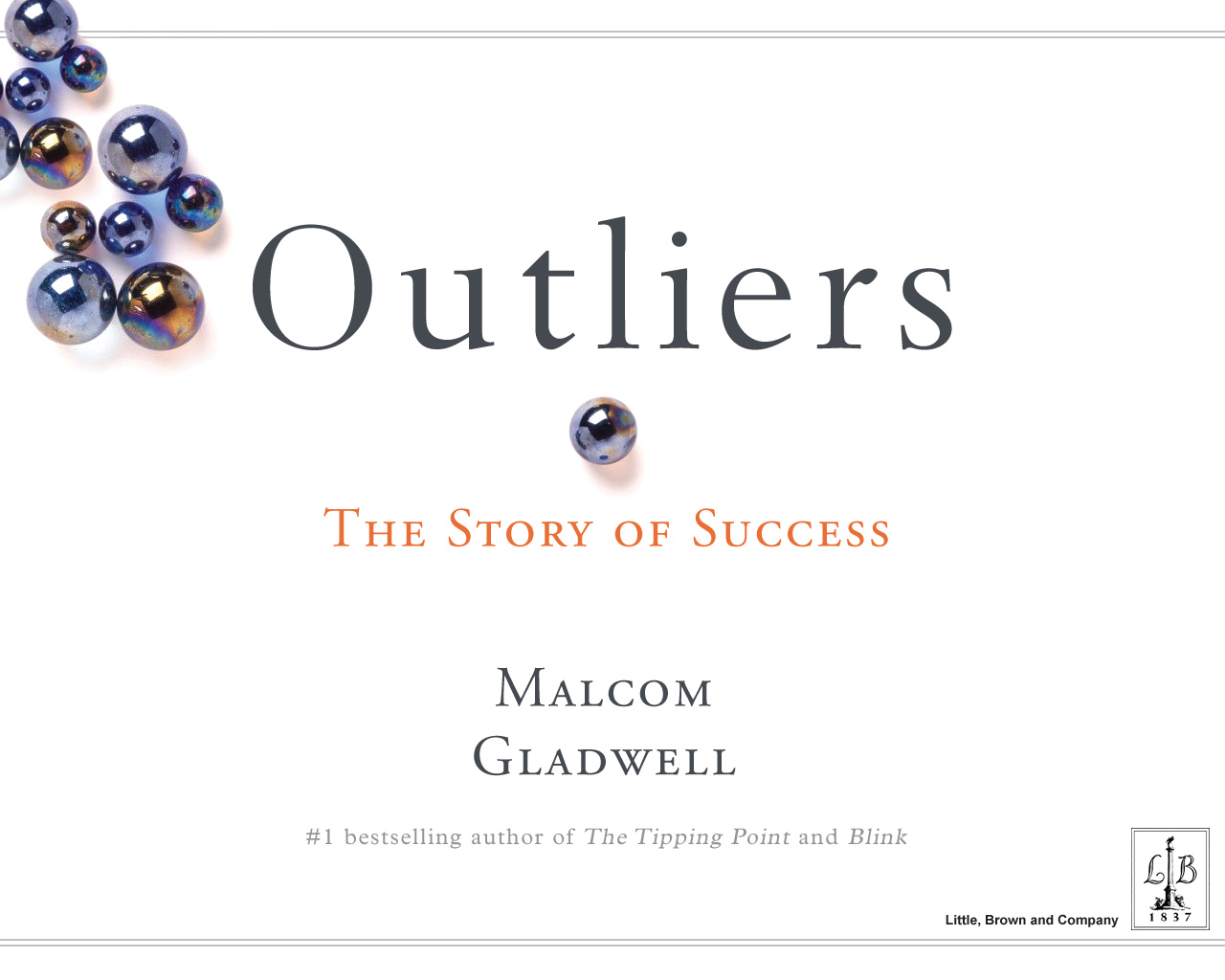Book review “Outliers” by Malcolm Gladwell
I enjoy social science. I didn’t realize how much until I started reading Malcolm Gladwell’s books. In my book reviews, I like to analyze the writing – how clearly and interestingly concepts are conveyed. But more than that, I really like to dig into the substance and the major takeaways (I’ll get into those later).
If you’re worried about spoilers, don’t be. There’s so much richness in Gladwell’s work that my overview only scratches the surface!
Gladwell does an amazing job of introducing the reader to a subject you think you know, and then artfully revealing something you didn’t expect. That happened many times while reading Outliers.
He uses this technique to explain why the best hockey players have similar birthdays, or to explain the reason for most plane crashes. I refuse to ruin it for you, but you too will see what I mean. This was just one of the reasons I found the writing to be incredibly skillful.
I read most of the book aloud to my parents on car rides while on vacation, and there were virtually no hiccups in the writing. Any stumble or stammer I attribute to my poor eyesight and the bumpy road. There were very smooth transitions throughout the book from concept-to-concept and between each case study.
Substance
The book Outliers is about success, but once again, in a way that you wouldn’t expect.
Gladwell candidly examines the most successful people we all know – Bill Gates and the Beatles were among many others. He demonstrates that their successes are a perfect storm of ability, community, and opportunity, and even some luck.
Gladwell proves throughout the book why we should abandon our false belief that successful people did it all alone. Instead, we should adopt the belief that their success was possible because of the opportunities they were given or by unique circumstances that were created through forced opportunities.
In the case of the Bill Gates and the Beatles, they had the golden opportunity to get unfettered practice of their crafts. Bill Gates had access to cutting edge computing technology when most didn’t and the opportunity to use a computer frequently – at a time when many could not easily access a computer. Similarly, when the Beatles were just starting out, they had the chance to play at a pub every night for a few years. So, by the time they made their debut in the US they were stage-ready, comfortable and confident, and had mastered their on-stage chemistry as a group which set them apart from other bands.
But Gladwell also shows us that sometimes “missed opportunities” are actually great opportunities for those willing to accept a challenge. He discusses how Jewish lawyers in the 1930s in NYC had very little chance of securing jobs at top law firms or any law firm. Discrimination forced them to start their own firms, take cases no one else would, and do highly specialized legal work no one really needed at the time. Eventually, the way companies were doing business with each other began to shift, and those best poised to handle the changing times happened to be Jewish lawyers because they were the only attorneys working those specialized type of cases.
Nevertheless, we learn that success is much more than just opportunities. Communities, family, and tradition all aid in the success of individuals. While reading, I saw exactly how Gladwell was teaching us the importance of cultural traditions. I wondered if he were ever going to discuss the elephant in the room: Black Americans and the historical impact slavery had in destroying traditions, communities, and families. Certainly, we experienced systematic impediments to success for centuries. I wondered if he was going to acknowledge that or gloss over it?
I can’t lie, as I read about the other groups chapter after chapter, I was bracing myself for the immense disappointment I would feel for a book so thorough in research not even mentioning the complex layers of slavery and its impact on success.
Once again, Gladwell did not disappoint.
Not only does he address issues surrounding slavery, he also discusses the very controversial topic of colorism and his own personal advantages as a fair skinned person due to shameful slave traditions passed down for generations. I also liked that he discussed colorism in the black Caribbean community which some pretend doesn’t exist.
The overall takeaway from the book is that you can never hang your hat on the success you experience in life being attributed solely to individual effort. Yes, you do have to work hard. Yes, you must have reasonable intelligence. But that alone won’t get you there. Factors such as family, community, cultural tradition, heck even WHEN you were born contribute to success.
So, it’s with this understanding he argues, holding people up and out as “markers of success” – to suggest they did it all alone, only serves to perpetuate a myth and disadvantage others who likely have just as much ability to succeed with some help. The key instead is to give more opportunities to everyone and acknowledge these factors in order to create more successful people.
I agree! And I give this book an A+!
Support this amazing author! Click HERE to get the book!
Do YOU have a book that you want reviewed? Contact me and send a copy of your book to:
Aknowingspirit, LLC
P.O. Box 3324
Washington, DC 20010
Or send a PDF version through the “Contact” page.
I will give a fair and honest review. I promise to give the same amount of attention and care to your book as a NYT Bestseller.
At this time I only review inspirational, self-help, or Christian books. Fiction and non-fiction are welcome!


Hey! I could have sworn I’ve been to this website before but
after reading through some of the post I realized it’s new to me.
Anyways, I’m definitely happy I found it and I’ll be book-marking and
checking back frequently! http://backstreetsofhickory.com/